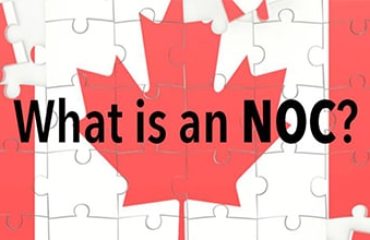Early Childhood Education – Your pathway to a Canadian permanent residence card
1. An overview on Early Childhood Education in Canada
1.1. What does an early childhood educator do?
An early childhood educator is a registered teacher who specializes in taking care and working with children of up to 6 years of age. This is the golden stage for kids to discover and learn new things from what is happening around them. Therefore, kindergarten teachers play a significant role in the shaping and development process of a child’s personalities.

Canada is one of the countries in the world with the best education system and training quality that considers early childhood education as a top priority. These days, there is an increase in the demand for skilled employees working in the Early Childhood Education industry. As a result, international students in this field can gain some advantages in tuition fees, jobs seeking and immigration opportunities in Canada.
1.2. Qualifications to become an early childhood educator
Early childhood educators are people who work directly with children, which requires many skills and qualities of a good teacher, including:
– Your adoration of kids and passion for your job
– Your patience
– Your solving-problems skill and flexibility
– Your morals and professional skills
1.3. Employment opportunities and potential income
In Canada, there are many career path possibilities for students in the Early Childhood Education field after their graduation. They can become kindergarten teachers for both public and private schools, or work as a freelance tutor or babysitter. They also can consider to participate in organizations for children.
A new graduate kindergarten teacher normally gets paid C$16 per hour. A skilled teacher’s average salary is approximately C$30,000 a year. This number can be much higher for a senior position with more years of working experience. This is one of the reasons why Early Childhood Education courses are attracting the attendance of numerous international students.
Because of the importance of this field, the government currently allows international students to remain in Canada to work up to 3 years after they finish their programs. Furthermore, most of the provinces in Canada have priority policies for early childhood educators to immigrate to Canada.
2. Which provinces have priority immigration policy for the Early Childhood Education field ?
It is not difficult for Early Childhood Educators to apply for permanent residency in one of the 11 Canadian provinces and territories through the Express Entry program: Federal Skilled Worker (FSW) or Provincial Nominee Program (PNP).
Holding only one year of work experience as a preschool teacher in Canada can guarantee you and your family a slot to become Canadian permanent residents.
Information sheet of Early Childhood Education immigration programs in Canada by provinces:
| Place | Immigration Program |
| Manitoba | Skilled Worker Stream Skilled Worker Overseas Stream Modern Community Driven Immigration Initiative |
| Prince Edward Island | PEI PNP Express Entry Labour Impact Category Business Impact Category |
| Saskatchewan | Saskatchewan Express Entry International Skilled Worker: Occupation In-Demand |
| Nova Scotia | Nova Scotia Demand: Express Entry Nova Scotia Experience: Express Entry Nova Scotia Labour Market Priorities Skilled Worker Stream Atlantic Immigration Pilot Program |
| Ontario | Human Capital Category Employer Job Offer Category |
| Alberta | Alberta Express Entry Stream |
| British Columbia | Skills Immigration Express Entry British Columbia |
| New Brunswick | Express Entry Labour Market Stream Skilled Workers with EFamily Support Atlantic Immigration Pilot Pmployer Support Skilled Workers with program |
| Newfoundland & Labrador | Newfoundland and Labrador Express Entry Skilled Worker Skilled Worker Category Atlantic Immigration Pilot Program |
Each provinces’ programs have different benefits and requirements for applicants. Manitoba and Saskatchewan are considered as two provinces with simple and relatively straightforward requirements compared to other places.
An early Childhood Educator without a job offer can still settle in Saskatchewan province under the Saskatchewan Express Entry program, International Skilled Worker: Occupation In-Demand, or in Manitoba under the program Skilled Workers Overseas.
2.1. Saskatchewan
The Saskatchewan Immigrant Nominee Program (SINP) is Saskatchewan’s Provincial Nominee Program. A preschool teacher without a job offer who is living outside of Canada or holding a legal temporary residence permit in Canada but is not a refugee claimant may be nominated under two categories:
– International Skilled Worker: Occupations In-Demand: for skilled workers who meet the following requirements:
- Score a minimum of 60 out of 100 on the SINP point assessment grid
- Have language score of at least 4 (CLB4)
- Have earned a diploma, certificate or degree in Canada or equivalent outside Canada
- Have at least 1 year of full-time work experience related to Early Childhood Education over the past 10 years
- Have a proof of settlement funds and a settlement plan
– Saskatchewan Express Entry: International Skilled Worker allows the province of Saskatchewan to nominate candidates who already submitted an Express Entry profile and their occupations are in the list of in-demand occupations of Saskatchewan, for example: preschool teacher. Candidates’s conditions include:
- Have a valid Express Entry Profile Number
- Score a minimum of 60 out of 100 on the SINP point assessment grid
- Have earned a diploma, certificate or degree in Canada or equivalent outside Canada
- Have at least 1 year of full-time work experience related to Early Childhood Education over the past 10 years outside Canada or 1 year over the past 3 years inside Canada
2.2. Manitoba
Skilled Workers Overseas Program
This is the program under Manitoba Provincial Nominee Program (MPNP). All applicants must demonstrate a strong established connection to Manitoba either through supporters, previous education and work experience in the province, or through an Invitation to Apply received directly from the MPNP.
Manitoba Support
They can be close friends or relatives of the candidate, and must be:
- A Canadian citizen and permanent resident who resided and are established in Manitoba and have been living in the province continuously for at least 1 year
- Able to demonstrate sufficiently close ties to the applicant and to Manitoba
- Able to demonstrate that any applications they previous supported in successful, permanent economic establishments in Manitoba
- Able to support the applicant’s Settlement Plan
The relationships can be considered as close relatives to the applicant: Father or Mother, Grandfather or Grandmother, Brother of Sister, Nephew or Niece, Uncle or Aunt, Cousins. Both the applicant and the supporter must provide documents providing their familial relationship.
Manitoba Experience
Past employment in Manitoba: You have to work full-time for a Manitoba employer for at least six consecutive months.
Past education in Manitoba: You have to complete at least a post-secondary program from a registered institution in Manitoba
Manitoba Invitation
This is a part of Strategic Recruitment initiatives in Manitoba and overseas. Candidates may receive Invitation to Apply letter when participating in the overseas recruitment mission of the province of Manitoba or after interviewing with MPNP staff.
Eligibility criteria to participate in visits and missions include that you:
- Score a minimum of 60 out of 100 on the MPNP point assessment grid
- Are between the ages of 21 to 45
- Have completed at least a one-year, post-secondary education or training program for which you received a diploma, degree or certificate
- Have worked at least two years full-time in the past five years and can demonstrate your ability to find a job in Manitoba in that occupation
- Have the genuine intention and ability to economically establish and settle in the Canadian province of Manitoba as a permanent resident demonstrated
- Have official results of an approved language test taken within the past two years showing you achieved scores equivalent to at least CLB 5 in each test category and overall.
If you are a child lover and wish to work in the early childhood education field for a long term as well as settle in Canada, this pathway career is perfect for you.
VIVAS – EDUCATION & IMMIGRATION, with a team of experienced consultants and professional ICCRC Immigration Lawyers in Toronto, Canada, is ready to advise and assist in all matters related to overseas study and immigration. Contact us today via hotline CANADA (+1) 647 525 2689 – VIETNAM (+84) 286 652 2689. Thank you!
Source:
https://www.saskatchewan.ca/residents/moving-to-saskatchewan/immigrating-to-saskatchewan/saskatchewan-immigrant-nominee-program
https://www.immigratemanitoba.com/immigrate-to-manitoba/swo/


 Tiếng Việt
Tiếng Việt 



